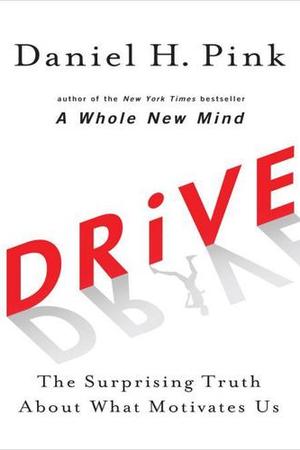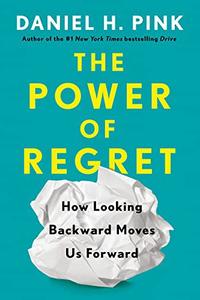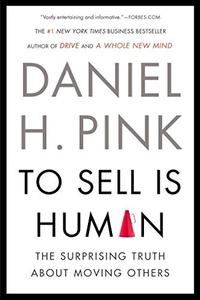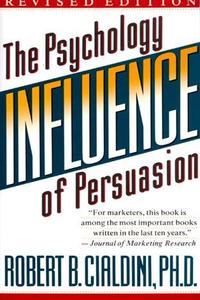
Drive by Daniel Pink: Summary & Notes
by Daniel Pink
In One Sentence
Traditional carrot-and-stick motivation fails for creative work—true motivation comes from autonomy, mastery, and purpose.
Key Takeaways
- Extrinsic rewards (bonuses, punishments) work for routine tasks but undermine creative performance
- Autonomy: people want control over their work, time, team, and technique
- Mastery: we're driven to get better at things that matter—it's its own reward
- Purpose: we want to be part of something larger than ourselves
- Type I (intrinsic) motivation leads to better performance and well-being than Type X (extrinsic)
- The key is to pay people enough that money isn't an issue, then focus on AMP
Summary
Pink uses a variety of psychological research and case studies to show that pure monetary incentives are no longer the best way to motivate people. Instead, particularly for jobs which require problem solving (without a clear path to solution), we should aim to increase intrinsic motivation. To accomplish this, we should focus on providing opportunities for autonomy, mastery and purpose. A fascinating book that has many implications for today’s knowledge economy. One of the most useful parts of the book is the models and summaries provided at the end. Skip to those to get the main points.
Who Should Read This Book
- Managers wondering how to motivate their teams
- HR professionals designing compensation and incentive systems
- Anyone feeling unmotivated at work who wants to understand why
- Leaders building organizational cultures
FAQ
What is Autonomy, Mastery, Purpose (AMP)?
These are the three elements of intrinsic motivation. Autonomy is the desire to direct our own lives. Mastery is the urge to get better at something that matters. Purpose is the yearning to do what we do in service of something larger than ourselves.
Why do bonuses backfire according to Drive?
For creative and complex work, external rewards narrow focus and reduce intrinsic motivation. People start working for the reward, not the work itself. This "overjustification effect" can turn play into work and reduce both performance and satisfaction.
📖 Chapter-by-Chapter Breakdown
Click to expand the full detailed notes for every chapter →
📖 Chapter-by-Chapter Breakdown
Click to expand the full detailed notes for every chapter →
Notes
Introduction
- Monetary rewards an deliver short-term boosts in productivity when tasks are clear, but decrease long-term motivation.
Part One - A New Operating System
Chapter 2 - Seven Reasons Carrots and Sticks (Often) Don’t Work…
- Rewards narrow our focus, which is good for tasks that have a clear path to completion (algorithmic tasks), but bad for tasks that require problem solving and creativity.
Carrots and Sticks: The Seven Deadly Flaws
- They can extinguish intrinsic motivation.
- They can diminish performance.
- They can crush creativity.
- They can crowd out good behavior.
- They can encourage cheating, shortcuts, and unethical behavior.
- They can become addictive.
- They can foster short-term thinking.
Chapter 2A - . . . and the Special Circumstances When They Do
- Ensure that baseline compensation is adequate and fair.
- For routine tasks, rewards can provide a small motivational booster shot.
- Abide rewards practices by:
- Offer a rationale for why the task is necessary.
- Acknowledge that the task is boring.
- Allow people to complete the task their own way.
- And the essential requirement: any extrinsic reward should be unexpected and offered only after the task is complete.
- Keep in mind that if this becomes predictable, it will become expected.
- Consider non tangible rewards: praise and feedback.
- Provide useful information: focus on specifics when giving feedback.
Chapter 3 - Type I and Type X
- Type X behaviour is fueled more by extrinsic desires than intrinsic ones.
- Type I behaviour is field more by intrinsic desires than extrinsic ones. It’s more concerned with the inherent satisfaction of the activity itself.
- A few more distinctions to keep in mind before we go further:
- Type I behavior is made, not born.
- Type I’s almost always outperform Type X’s in the long run.
- Type I behavior does not disdain money or recognition.
- Type I behavior is a renewable resource.
- Type I behavior promotes greater physical and mental well-being.
Part Two - The Three Elements
Chapter 4 - Autonomy
- Type I behavior emerges when people have autonomy over the four T’s: their task, their time, their technique, and their team.
Chapter 5 - Mastery
- Engagement in the task one is pursuing is key to mastery.
- To be engaged, ideally you are in flow, where goals are clear and feedback is immediate.
- For flow, the challenge of a task must be just slightly above your level of competence.
- You should also try and set “learning goals” instead of “performance goals” (learning French vs. getting an A in French class).
- The best predictor of success in achieving mastery is “grit”.
Chapter 6 - Purpose
- Autonomous people working toward mastery perform at very high levels. But those who do so in the service of some greater objective can achieve even more.
- "One cannot lead a life that is truly excellent without feeling that one belongs to something greater and more permanent than oneself.” - Mihaly Csikszentmihalyi
Part Three - The Type I Toolkit
Type I for Individuals
- As you contemplate your purpose, begin with the big question: What’s your sentence? (The sentence people would use to describe you in hindsight).
- Ex: Abraham Lincoln: “He preserved the union and freed the slaves."
- Here’s something you can do to keep yourself motivated. At the end of each day, ask yourself whether you were better today than you were yesterday. Did you do more? Did you do it well? Or to get specific, did you learn your ten vocabulary words, make your eight sales calls, eat your five servings of fruits and vegetables, write your four pages?
- In seeking mastery, make sure to accumulate deliberate practice: practice with the goal of improving performance.




